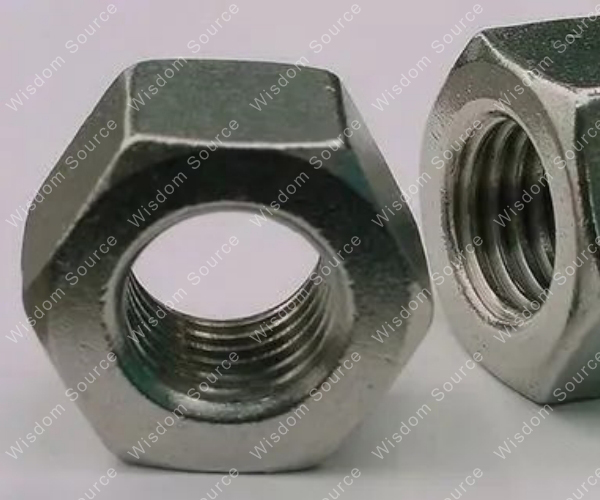Titanium Alloy Closed Nut Design & Durability Enhancement Innovation
Titanium Alloy Closed Nut Design & Durability Enhancement Innovation
As an excellent engineering material, titanium alloy is widely used in aerospace, marine engineering, medical and other fields due to its high strength, low density, corrosion resistance and biocompatibility. In order to further improve the structural durability of titanium alloy closed nut, the following innovative designs and optimizations have been made from several aspects.
1. Grade Selection & Material Enhancement
There are many titanium alloy grades. According to the application environment in which the nut is located, such as high temperature, high pressure or corrosive media, it is essential to choose the appropriate titanium alloy grade. At the same time, you can consider using titanium alloy composite materials or surface treatment technologies, such as nano-coating, ion implantation, etc., to further enhance the performance of the material and improve the durability of the nut.
2. Thread Structure & Anti-Loosening Design
Optimize the tooth shape, pitch and depth of the thread to ensure better carrying capacity and stability when bearing dynamic loads. At the same time, advanced anti-loosening designs, such as preload control, locking washers, etc., are introduced to effectively reduce the risk of loosening of the nut under vibration or shock conditions.
3. Surface Strengthening & Protection
The surface of titanium alloy is easy to form an oxide film, but for specific application environments, advanced surface treatment technologies such as plasma spraying and laser cladding can be further used to enhance surface hardness and wear resistance. In addition, chemical conversion film, anodizing and other methods can be used to improve the corrosion resistance of the nut.

4, The Optimization of The Molding Process
The cold forming processing of titanium alloy closed nuts requires strict control of process parameters, such as mold design, forming speed and temperature, to reduce internal stress concentration and crack generation. At the same time, advanced processing equipment and processes, such as precision casting and CNC machining, are introduced to improve the dimensional accuracy and mechanical strength of nuts.
5. Lightweight & Structural Design
Using the high specific strength characteristics of titanium alloy, through structural design optimization and lightweight treatment, the nut can meet the strength requirements while reducing weight.This can not only reduce the burden on the overall structure, but also help improve energy efficiency and reduce manufacturing costs.
6. Assembly & Testing Technology
During the assembly process, select the appropriate lubricant to reduce friction and wear, while adopting advanced torque control technology and assembly technology to ensure the tightness and stability of the nut. In addition, rigorous testing and verification, such as fatigue testing, impact testing, etc., are carried out to evaluate the durability and reliability of the nut.
In summary, through innovative design and optimization of grade selection and material enhancement, thread structure and anti-loosening design, surface strengthening and protection, molding process optimization, light-weight and structural design, and assembly with testing technology, the structural durability of titanium alloy closed nut can be significantly improved. This will help it to be widely used in more fields and promote the sustainable development of related industries.
